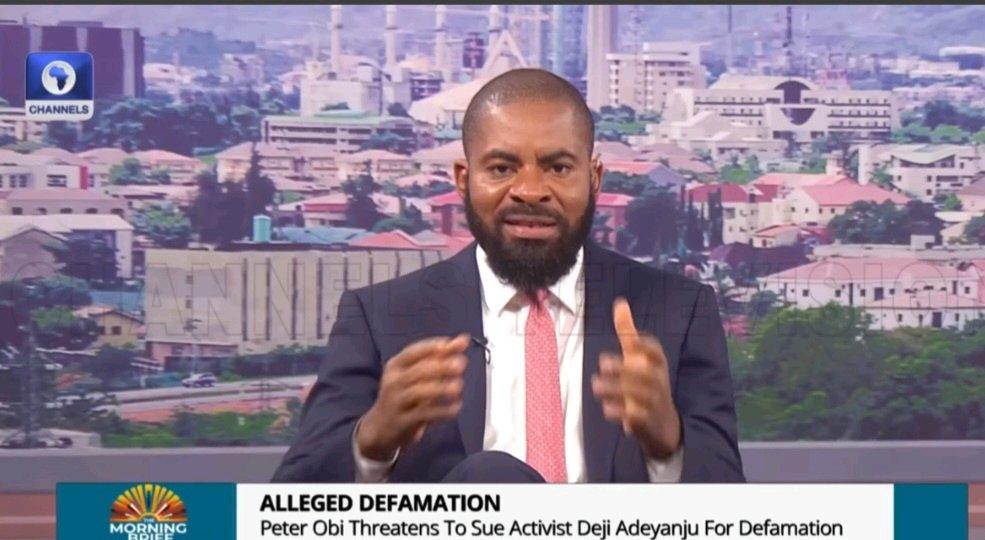Charlene White Faces Backlash for Not Wearing a Poppy on Loose Women — Fans Divided Over Presenter’s Choice
Viewers of ITV’s popular daytime show Loose Women have expressed outrage after noticing that presenter Charlene White did not wear a poppy in honour of Remembrance Day, unlike her co-hosts.
While Oti Mabuse, Kelle Bryan, and Judi Love all displayed the red flower symbolizing respect for fallen soldiers, Charlene’s outfit was noticeably without one — sparking heated debate online.
Taking to X (formerly Twitter), one viewer wrote:
“Charlene shouldn’t be presenting as she doesn’t want to wear a poppy. No respect.”
Another added:
“Does Charlene not care that many men lost their lives fighting for our country? The disrespect of her not wearing a poppy is disgraceful.”
However, others defended the ITV News presenter, arguing that wearing a poppy should be a personal choice.
“In a democracy, you are supposed to be free to have your own views and opinions — not what the poppy police say you should do,” one user countered.
This isn’t the first time Charlene has faced criticism over the issue. In a previous ITV article, she explained her reasons, revealing that the decision “was never easy” due to the racist and sexist abuse she receives online whenever she chooses not to wear the poppy.
She clarified that ITV’s editorial rules prohibit presenters from displaying visible charity support while anchoring news programming.
“Please don’t think that I don’t understand the sacrifices made by servicemen and women 100 years ago. I do,” Charlene wrote.
“It’s important to remember what our families fought for — the right to choose, and the right to freedom of speech and expression.”
Despite her explanation, the debate over freedom of choice versus public expectation continues to divide fans every year as Remembrance Day approaches.
Viewers of ITV’s popular daytime show Loose Women have expressed outrage after noticing that presenter Charlene White did not wear a poppy in honour of Remembrance Day, unlike her co-hosts.
While Oti Mabuse, Kelle Bryan, and Judi Love all displayed the red flower symbolizing respect for fallen soldiers, Charlene’s outfit was noticeably without one — sparking heated debate online.
Taking to X (formerly Twitter), one viewer wrote:
“Charlene shouldn’t be presenting as she doesn’t want to wear a poppy. No respect.”
Another added:
“Does Charlene not care that many men lost their lives fighting for our country? The disrespect of her not wearing a poppy is disgraceful.”
However, others defended the ITV News presenter, arguing that wearing a poppy should be a personal choice.
“In a democracy, you are supposed to be free to have your own views and opinions — not what the poppy police say you should do,” one user countered.
This isn’t the first time Charlene has faced criticism over the issue. In a previous ITV article, she explained her reasons, revealing that the decision “was never easy” due to the racist and sexist abuse she receives online whenever she chooses not to wear the poppy.
She clarified that ITV’s editorial rules prohibit presenters from displaying visible charity support while anchoring news programming.
“Please don’t think that I don’t understand the sacrifices made by servicemen and women 100 years ago. I do,” Charlene wrote.
“It’s important to remember what our families fought for — the right to choose, and the right to freedom of speech and expression.”
Despite her explanation, the debate over freedom of choice versus public expectation continues to divide fans every year as Remembrance Day approaches.
Charlene White Faces Backlash for Not Wearing a Poppy on Loose Women — Fans Divided Over Presenter’s Choice
Viewers of ITV’s popular daytime show Loose Women have expressed outrage after noticing that presenter Charlene White did not wear a poppy in honour of Remembrance Day, unlike her co-hosts.
While Oti Mabuse, Kelle Bryan, and Judi Love all displayed the red flower symbolizing respect for fallen soldiers, Charlene’s outfit was noticeably without one — sparking heated debate online.
Taking to X (formerly Twitter), one viewer wrote:
“Charlene shouldn’t be presenting as she doesn’t want to wear a poppy. No respect.”
Another added:
“Does Charlene not care that many men lost their lives fighting for our country? The disrespect of her not wearing a poppy is disgraceful.”
However, others defended the ITV News presenter, arguing that wearing a poppy should be a personal choice.
“In a democracy, you are supposed to be free to have your own views and opinions — not what the poppy police say you should do,” one user countered.
This isn’t the first time Charlene has faced criticism over the issue. In a previous ITV article, she explained her reasons, revealing that the decision “was never easy” due to the racist and sexist abuse she receives online whenever she chooses not to wear the poppy.
She clarified that ITV’s editorial rules prohibit presenters from displaying visible charity support while anchoring news programming.
“Please don’t think that I don’t understand the sacrifices made by servicemen and women 100 years ago. I do,” Charlene wrote.
“It’s important to remember what our families fought for — the right to choose, and the right to freedom of speech and expression.”
Despite her explanation, the debate over freedom of choice versus public expectation continues to divide fans every year as Remembrance Day approaches.
0 Kommentare
·0 Geteilt
·366 Ansichten






